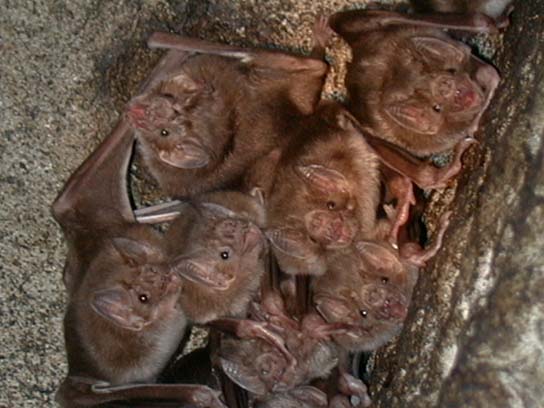 |
The EVOLUTION of MORALITY |
FRAME 13A |
 |
|
 |
> MORAL OUTCOMES (BEHAVIORAL GENETICS)
Some cases of costly helping are explained, alternatively, by reciprocity.
Kin selection cannot explain every costly act. Behaviors that reduce individual fitness also occur among non-kin. Context, again, is important. Other behaviors between the same organisms may be relevant. Exchanges (as in other cooperative mutualisms) may simply be displaced in time. Namely, the recipient may later reciprocate, essentially closing an unstated deal (Trivers 1971).
 Such reciprocity, or deferred mutualism, is observed in vampire bats (Desmodus rotundus) (Wilkinson 1984, 1988, 1990). The bats cannot survive without food more than a few days. But on any given night, 7-30% of the bats fail to find a meal. A bat may then turn to a roostmate and nuzzle its throat. On roughly 5 of 8 occasions, the second bat regurgitates a small amount of blood for the first bat. Such sacrifices are not isolated acts, however. Eventually the donor bat fails to find food. Because bats frequently return to the same roost, the same behavior can occur again, with the roles reversed. The "debt" is repaid. Reciprocity, or the potential for such, is critical.
Such reciprocity, or deferred mutualism, is observed in vampire bats (Desmodus rotundus) (Wilkinson 1984, 1988, 1990). The bats cannot survive without food more than a few days. But on any given night, 7-30% of the bats fail to find a meal. A bat may then turn to a roostmate and nuzzle its throat. On roughly 5 of 8 occasions, the second bat regurgitates a small amount of blood for the first bat. Such sacrifices are not isolated acts, however. Eventually the donor bat fails to find food. Because bats frequently return to the same roost, the same behavior can occur again, with the roles reversed. The "debt" is repaid. Reciprocity, or the potential for such, is critical.
|

 |
|
|